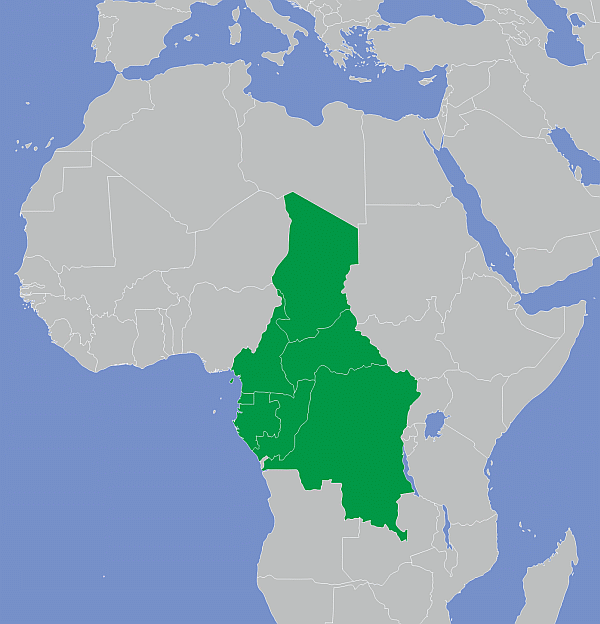|
|
The Economic and Monetary Community of Central Africa (or CEMAC from its name in French: Communauté Économique et Monétaire de l'Afrique Centrale, in Spanish: Comunidad Económica y Monetaria de África Central, and in Portuguese: Comunidade Económica e Monetária da África Central) is an organization of states of Central Africa established by Cameroon, Central African Republic, Chad, Republic of Congo, Equatorial Guinea and Gabon to promote economic integration among countries that share a common currency, the CFA franc. UDEAC signed a treaty for the establishment of CEMAC to promote the entire process of sub-regional integration through the forming of monetary union with the Central Africa CFA franc as a common currency; it was officially superseded by CEMAC in June 1999 (through agreement from 1994). CEMAC's objectives are the promotion of trade, the institution of a genuine common market, and greater solidarity among peoples and towards under-privileged countries and regions.[8] In 1994, it succeeded in introducing quota restrictions and reductions in the range and amount of tariffs. Currently, CEMAC countries share a common financial, regulatory, and legal structure, and maintain a common external tariff on imports from non-CEMAC countries. In theory, tariffs have been eliminated on trade within CEMAC, but full implementation of this has been delayed. Movement of capital within CEMAC is free. Link: CEMAC

Members, Observers and other participations
|
|
